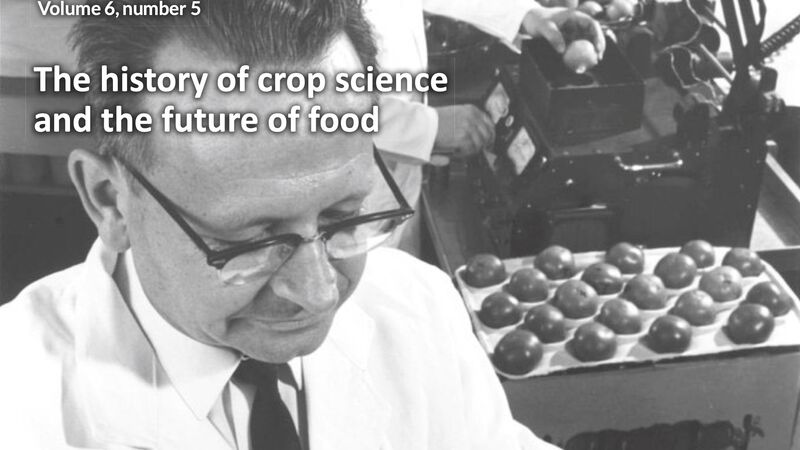The History of Crop Science and the Future of Food
Project co-leads: Helen Anne Curry and Ryan Nehring (International Food Policy Research Institute)
Special Issue, The History of Crop Science and the Future of Food, Plants People Planet, September 2024

This special issue of the Open Access interdisciplinary journal Plants, People, Planet brings new voices and perspectives to the ongoing project of understanding the history of agricultural science and development, with the goal of better informing research and policy of the present and future.
Since the turn of the twentieth century, crop science has pushed agricultural productivity to unprecedented levels, while expanding production frontiers worldwide. These achievements have been widely celebrated for averting famine and sustaining economic development even as global population expanded dramatically. However, a dominant narrative of science-driven agricultural growth over this period has at times obscured the persistence of hunger, emergence of environmental problems, and contributions of scientific research and technological interventions to inequality despite the best intentions of those working in crop science and related fields. Historical accounts of agricultural change have been crucial in forging new understandings of the (uneven) contributions of crop science to sustaining human communities and cultures at local, regional, and global scales.
Contributions to the special issue offer historically informed accounts that chart how and with what consequences various kinds of knowledge, labour, techniques and tools within crop science and allied fields were used to advance agricultural production in specific times and places. They will reflect especially on how historical perspectives help us to understand the relationships among crop science, environmental change, food security and, ultimately, human well-being.
In bringing together geographically diverse and historically rich perspectives, the special issue offers new insights into the changing role of plant scientists and other researchers in shaping the conservation, utilization and cultivation of diverse crop varieties and communities’ experiences of food security and sovereignty – during a period in which scientists aimed to address these as increasingly pressing, and increasingly global, concerns.
Read more in the editors' introduction to the Special Issue, written by Curry and Nehring, or visit the complete Open Access special issue.
